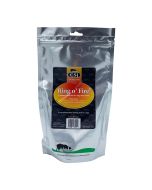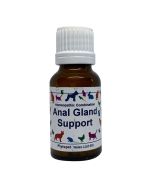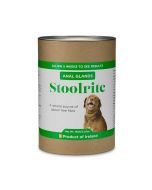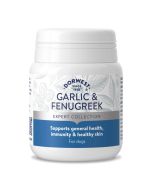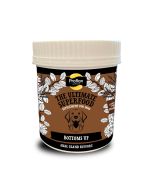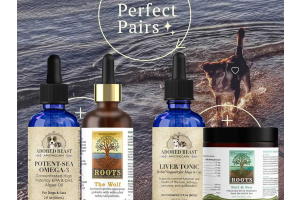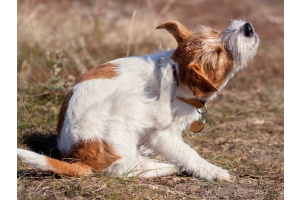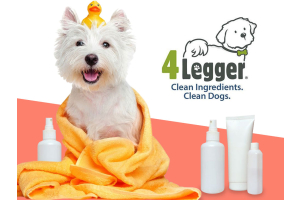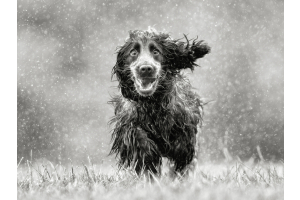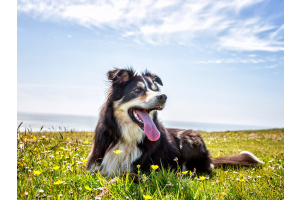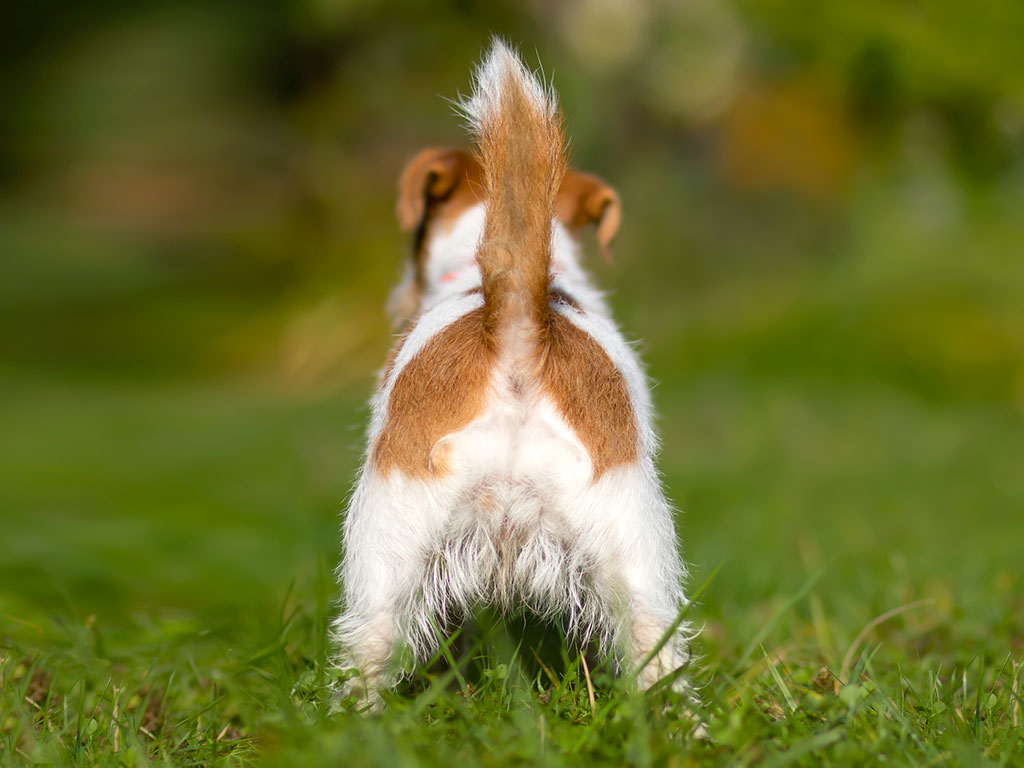
This is a question that we frequently get asked as pet parents are concerned their dogs or cats may be constipated.
It is always a good idea to keep an eye on your pet's bowel movements and observing their poop. What your dog is fed / eats will affect your pet's poop. Sometimes it may be drier; at other times looser. If your pet is not allowed to evacuate when the urge is there, they may develop a habit of holding their stools. If your pet is straining when passing stools / the stools are hard and dry then this could be a sign of constipation.
Many factors can contribute to constipation including diet and inactivity. Manx cats, for example, are especially prone to constipation.
What Causes Constipation In Dogs?
Diet - constipation can occur when there is a lack of dietary fibre / not enough bulk in your pets' diets. A diet that doesnt provide the right digestive enzymes to the gut. Too much or too little fibre in your dog’s diet may cause constipation.
Dogs can become constipated after feasting on bones as a result of the minerals in the bones contributing to concrete-like stools. Your dog may also find it difficult to pass stools if they have had too much calcium (usually from bones) or fat in his diet.
If the constipation is due to too much bone in your dog’s diet, your dog’s stool will look dry, chalky and crumbly. Constipation from bone is also common in dogs who are switching to raw.
Hair found on certain chews can help to maintain the flow in the intestines and helps to scour the intestinal tract free of parasites.
Eating something they shouldn't!: One of the most common reasons dogs get constipated is that they have eaten something they shouldn’t have. This can include stones, pieces of toys, or something they found whilst on a walk. If big enough, these items can cause bowel obstructions, which can be life threatening if they aren’t dealt with.
Exercise - regular and plenty of exercise helps to maintain regular bowel function as it helps to get the bowels moving which is important for massaging the internal organs as well as increasing blood flow throughout the body to help stimulate a sluggish metabolism. Not getting enough exercise may slow the movement of stools through the colon, causing the colon to absorb too much water from the stool and thus causing constipation. If your cat is not an outdoor cat, encourage play with your cat such as running after toys or playing with a catnip mouse on a string which encourages pouncing a few times a day.
Hair - Matted hair around the anus can stop your dog from being able to pass stools properly, which can lead to constipation. Your dog can also get constipated from over-grooming, which may lead to too much hair in the stool.
Dehydration - your pets need adequate water so ensure they are adequately hydrated. If your pets don't drink enough this can lead to hard, dry stools as the intestines can’t add enough water to the stool before it enters the colon. To check for dehydration do a pinch test. Pinch a fold of skin on your dog’s neck. It should bounce back into place in a second. If it takes longer, your dog is most likely dehydrated.
Ensure the food that you feed has a high water content as typically in the wild animals get much of their water from the food they eat; this is especially true for cats. Kibble is much lower in moisture content, so this can lad to underconsumption of water. Whilsts pets on kibble will tend to drink more water compared to those on wet foods, they may not be drinking enough to make up the difference. So always have a bowl of water available so your pet has access to fresh, filtered, clean water throughout the day. Change the water frequently (animals instinctivley look for clean water to drink and could be reluctant to have water that has been sitting for a long time). Make sure the bowl is big enough. For cats make sure their whiskers dont touch the side of the bowl - their whiskers are very sensitive and don't like the sensation of brusing up against the side of their bowl. Cats also have a preference for running water as they like to seek moving water, as standing water in the wild can be a sign of contamination. So maybe consider purchasing a water fountain.
Adding a little bone broth may encourage your cat or dog to drink more. At Healthful Pets we sell a range of broths that can be added to food and may help your pets drink more. See the range here: BROTHS
Age - older dogs are more likely to have problems with constipation as their systems start to slow down. They may also exercise less (see exercise above). Older cats especially are prone to constipation due to decreased activity.
Stress - Your dog’s brain and digestive tract are constantly communicating with each other. This helps regulate bodily functions. But that also means stress and anxiety can affect your dog’s digestive tract. The most common digestive issues related to stress are diarrhea, stomach pain and constipation.
Other causes, include digestive issues such as inflammatory bowel disease, certain medications as some have diuretic side effects, certain illnesses such as hypothyroidism and an enlarged prostrate gland can lead to constipation. Also injury if your dog has a spinal, hip or pelvic injury, making defeacting more painful.
Blocked Anal Glands /Sacs - The anal glands are two small (marble-sized) oval-shaped sacs that sit under the skin on either side of the anus. They contain oil and sweat glands. The anal glands produce a strong-smelling, oily fluid that is unique to your dog, that when all is well, is expelled through tiny openings / ducts and empty onto the faeces during each bowel motion.
The anal glands are a scent marking system and a major form of communication between animals, as the scent of this fluid helps dogs mark their territory (urine does this as well) helping to identify much about the animal; such as whether they have met before, their sex, their approximate age and if they are unwell. This is part of the reason dog's sniff each others rears! If your dog is anxious or fearful fluid may be expressed from the anal glands.
Anal glands empty from the pressure of the stool as it passes through the rectum and anus. Ideally the stool will be firm and uneven (having bumps and lumps as a result of what your dog is digesting when they poop). As the stools travel through the colon they are massaging the anal glands and helping them to express as the stool comes out.
Unfortunately many dogs have soft, uniform stools or irregular bowel movements that don't provide sufficient pressure against the anal glands during evacuation. This may be as a result of being fed processed foods making their stools too soft and therefore not having the ability to massage those glands to express them. Solid, lumpy poops are key!
As long as the ducts in the anal glands are open and the consistency is liquid enough, your dog won't have any problems. But in some dogs this fluid builds up, thickens and cannot get out on its own with the dog feeling irritation, pressure and pain in the rectal area. Once anal glands become impacted (blocked) they can become infected - bacteria can overrun the anal glands filling them with pus. This can be extremely painful.
Signs that your dog's anal glands aren't expressing properly include:- your dog or cat may lick their bum a lot (or even biting) becasue the anal glands feel uncomfortable and can feel itchy, chasing their tail, sitting uncomfortably or having difficulty sitting or standing or is dragging (scooting) their bottom across the floor. There may also be foul odour. Small / toy breeds tend to be more suspeptible to anal gland issues, so pay close attention to their little poops.
If the glands are overly full your Vet may need to express and empty your dog's anal glands and will be able to assess the secretions and check for infection.
Supporting Anal Gland Health Holistically
Consistency - Being consistent with timing of feeding and and walks will help your dogs digestive system to function properly.
Hydrate - ensure adequate fluid intake.
Exercise - ensure regular exercise to help with digestion and helps to keep the bowels moving. Not enough exercise which helps with digestion can cause the glands to be impacted as can a diet without enough fibre or doesnt provide the right digestive enzymes to the gut.
Ensure there are plenty of opportunties for your pets to relieve themselves so their isn't a tendancy to hold onto their stools. At least three opportunities a day to relieve themselves outside. For indoor cats make sure they have access to a clean, accessible litter tray
Diet - Just like us, dogs need fibre / roughage in their diet as fibre helps to absorb water and provide bulk to the stools helping to keep your dog's bowels regular and their stools nicely formed so they are not too soft so that the anal glands clear properly when they go to the toilet. Unfortunately most commercial dog diets don’t have much fibre.
Feed a balanced, species-specific natural diet that includes some fresh vegetables for adequate bulk. This will address both food sensitivies and poor stool consitency, as discussed above loose stools will contribute to anal gland issues as there is no pressure from firm stools to help expel their contents. Raw meat is a natural laxative for dogs and cats. Ensuring adequate fibre (but not too much) in the diet is key to having normal stools. Leafy greens, pumpkin, ground flax seeds and sweet potato are all good choices. One option to consider is Karnlea Pumpkin Powder for Dogs
As is discussed below marshmallow root or slippery elm powder can be helpful.
The ideal stool will have bumps and lumps as a result of what they are digesting when they poop. As these uneven stools travel through the colon and out they are massaging the anal glands and helping them to express. Animals on processed foods often have soft stools and as a result these stools have no ability to massage those glands to express them. Solid, lumpy poops are key.
Food sensitivities - eliminate inflammatory foods from your dogs diet. Some anal gland issues may mean there is a problem with the type of food that your dog is having / or even with a specific ingredient. Food irritation can be expressed in the areas of the rectum, anus and anal glands which are the last part of your dog' digestive tract. So look to see if your dog is consuming any inflammatory foods suh as wheat, rice, soy, oatmeal, legumes, potatoes and corn and if so eliminate these. Also consider discontuning foods high in omega-6 fatty acids which can be pro-inflammatory. These include chicken, and vegetable oils but may include other meats if these animals that haven't been grass fed.
Microbiome Inbalance / Digestive Enzyme deficiency -
Adding Digestive Enzymes: sometimes the digestive tract may not be digesting correctly. In this case you may want to try some digestive enzymes or some specific probotics.
If your dog is experiencing diarrhea on a regular basis then see a Vet to fully understand what is going on. If your dog glands are really painful sometimes you will need to go to the Vet.
So what products can help?
We sell a range of supplements to support your dogs digestive help which are high in soluble fibre to support optimal anal gland function.
Adored Beast - Adored Beast Healthy Gut
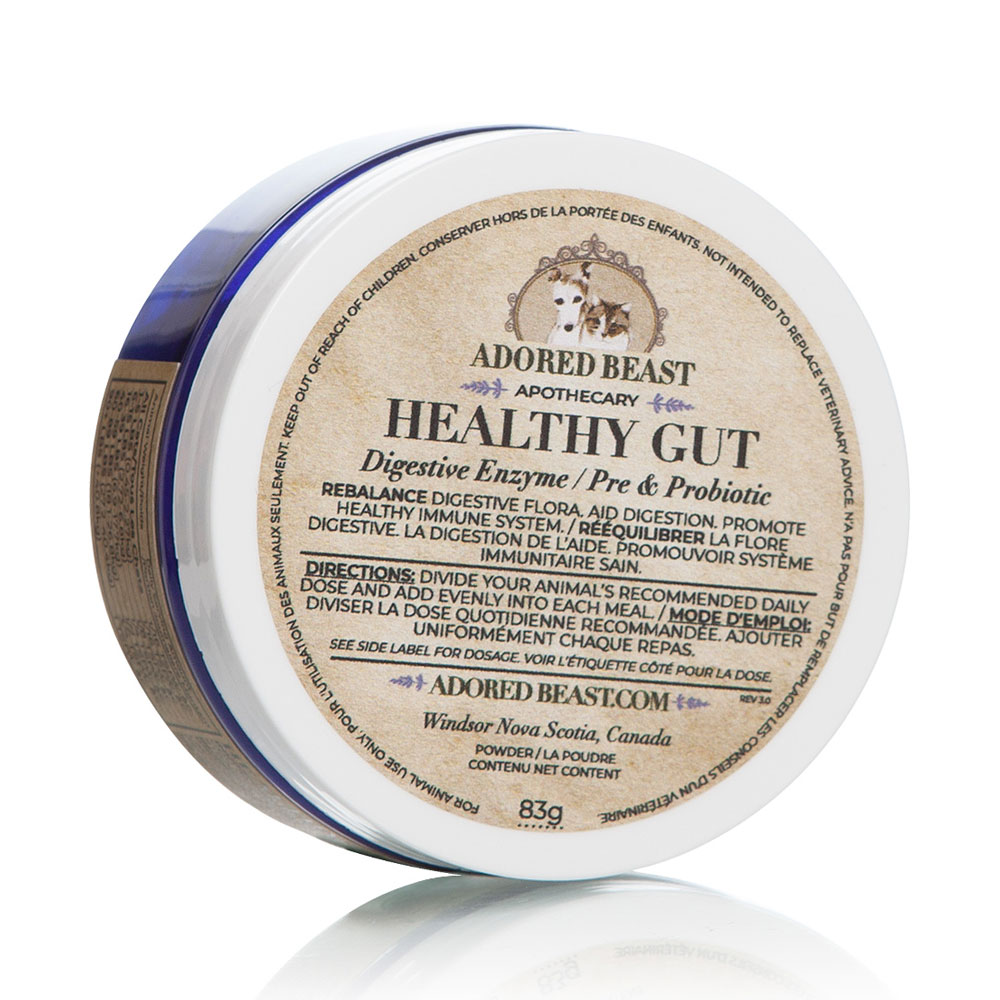
Seaweed for Pets - Stoolrite for dogs
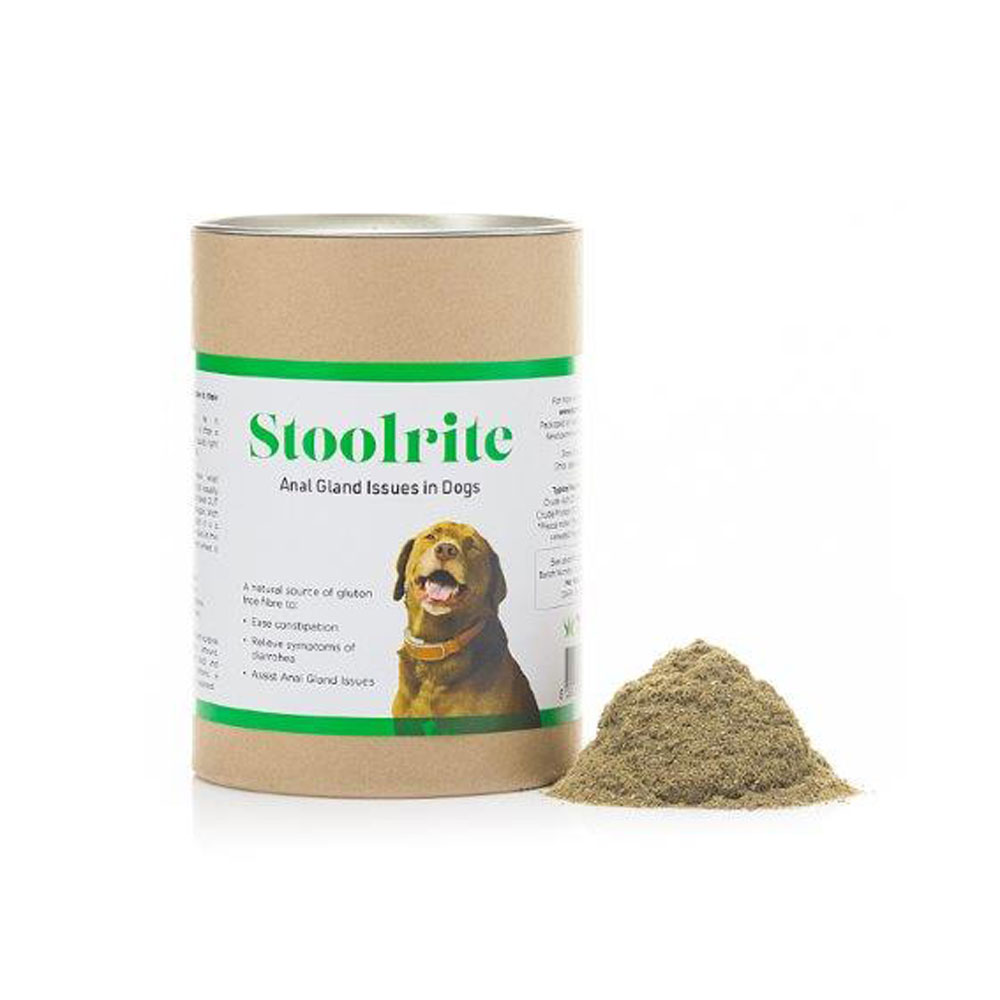 Stoolrite contains seaweed which is naturally high in fibre and contains a unique combination of soluble and insoluble dietary fibres to help stool quality in dogs. It can be used to assist in the formation of solid stools in dogs as well as a stool softener. Stoolrite can therefore help ease constipation and assist in anal gland issues in dogs.
Stoolrite contains seaweed which is naturally high in fibre and contains a unique combination of soluble and insoluble dietary fibres to help stool quality in dogs. It can be used to assist in the formation of solid stools in dogs as well as a stool softener. Stoolrite can therefore help ease constipation and assist in anal gland issues in dogs.
Proflax Proflax Bottoms Up for Dogs
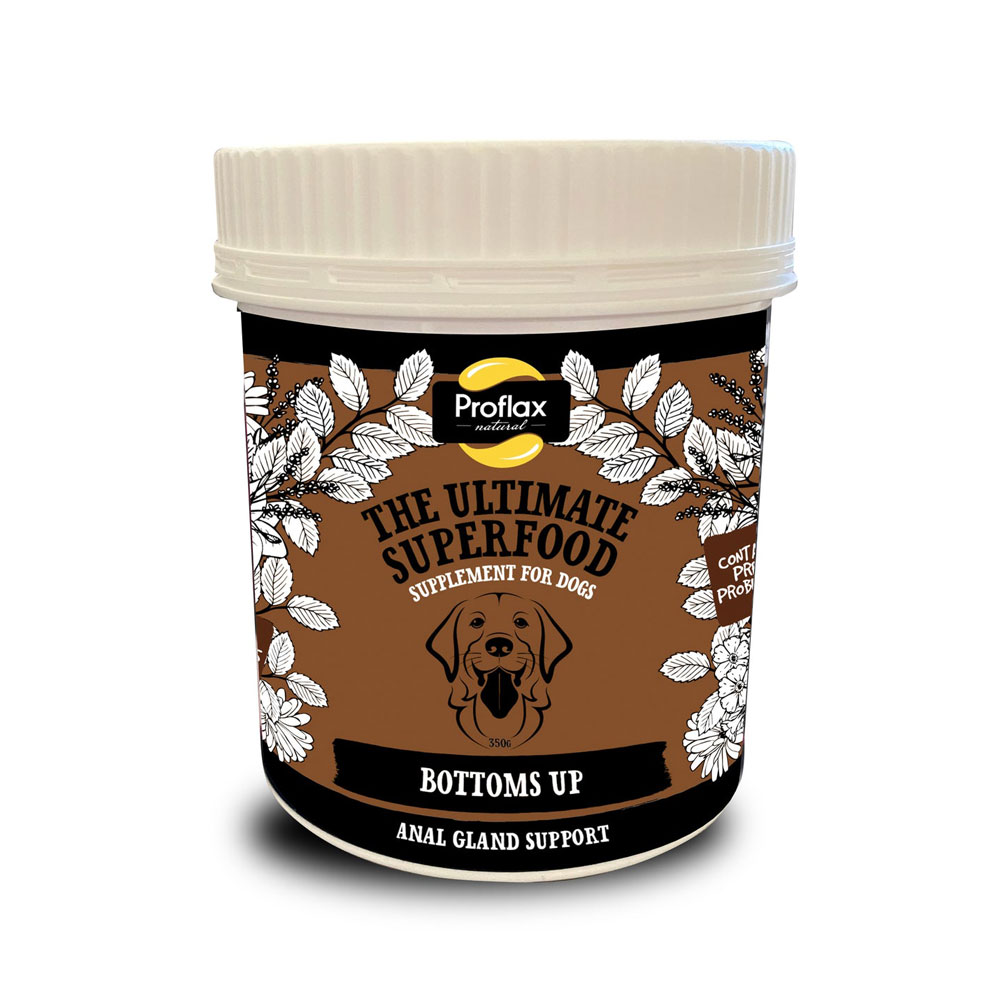 Proflax Bottoms Up is a 100% natural digestive supplement that contains ingredients which are high in soluble fibre to support optimal anal gland function. Formulated by a holistic vet, this blend contains psyllium husk, dandelion root, marshmallow root, ground linseed, probiotics and natural clays. These ingredients are also excellent at supporting your dogs immune and digestive systems, which are crucial for anal gland health.
Proflax Bottoms Up is a 100% natural digestive supplement that contains ingredients which are high in soluble fibre to support optimal anal gland function. Formulated by a holistic vet, this blend contains psyllium husk, dandelion root, marshmallow root, ground linseed, probiotics and natural clays. These ingredients are also excellent at supporting your dogs immune and digestive systems, which are crucial for anal gland health.
Proflax also have a product called Proflax Tummy Tastic which helps to support a healthy gut microbiome and digestive system, so may also be worth considering.
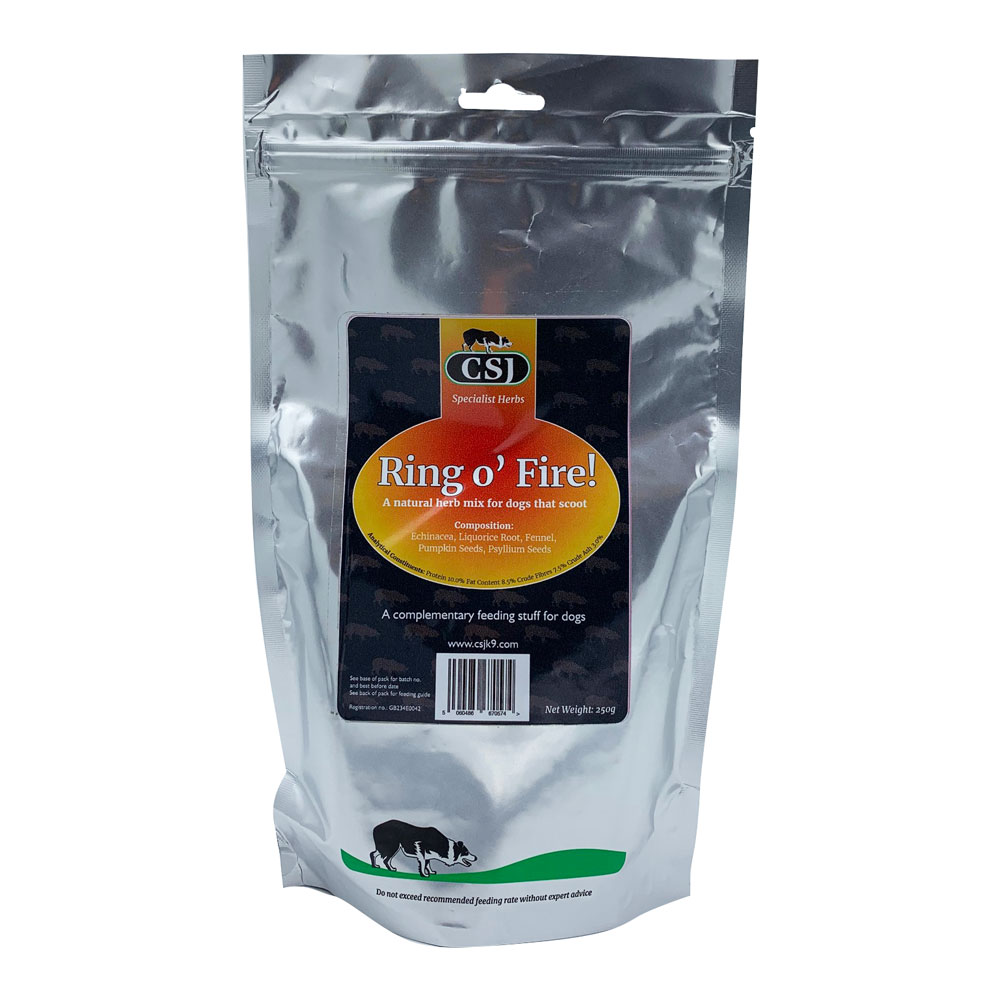 CSJ Ring 0' Fire! herb based powder has been specifically mixed for dogs that scoot. Contains: Echinacea, Liquorice root, fennel, pumpkin seeds and psyllium seeds.
CSJ Ring 0' Fire! herb based powder has been specifically mixed for dogs that scoot. Contains: Echinacea, Liquorice root, fennel, pumpkin seeds and psyllium seeds.
Phytopet Homeopathic Anal Gland Support
 Phytopet Homeopathic Anal gland support with a homeopathic combination of Calc carb, Hepar sulph, Silicea and Causticum. Silica is incredibly helpful to support the body in pushing out anything that is foreign. Phytopet also make a product called Pet Col which may be worth considering.
Phytopet Homeopathic Anal gland support with a homeopathic combination of Calc carb, Hepar sulph, Silicea and Causticum. Silica is incredibly helpful to support the body in pushing out anything that is foreign. Phytopet also make a product called Pet Col which may be worth considering.
Dorwest Garlic & Fenugreek for Dogs - if your dog shows signs of having a problem, give a daily treatment dosage of Garlic & Fenugreek based on their weight to relieve any minor infection that may be present and bathe the area with an antiseptic liquid to soothe and cleanse. If the problem persists of worsens consult your Vet. so that they can clear the glands manually.
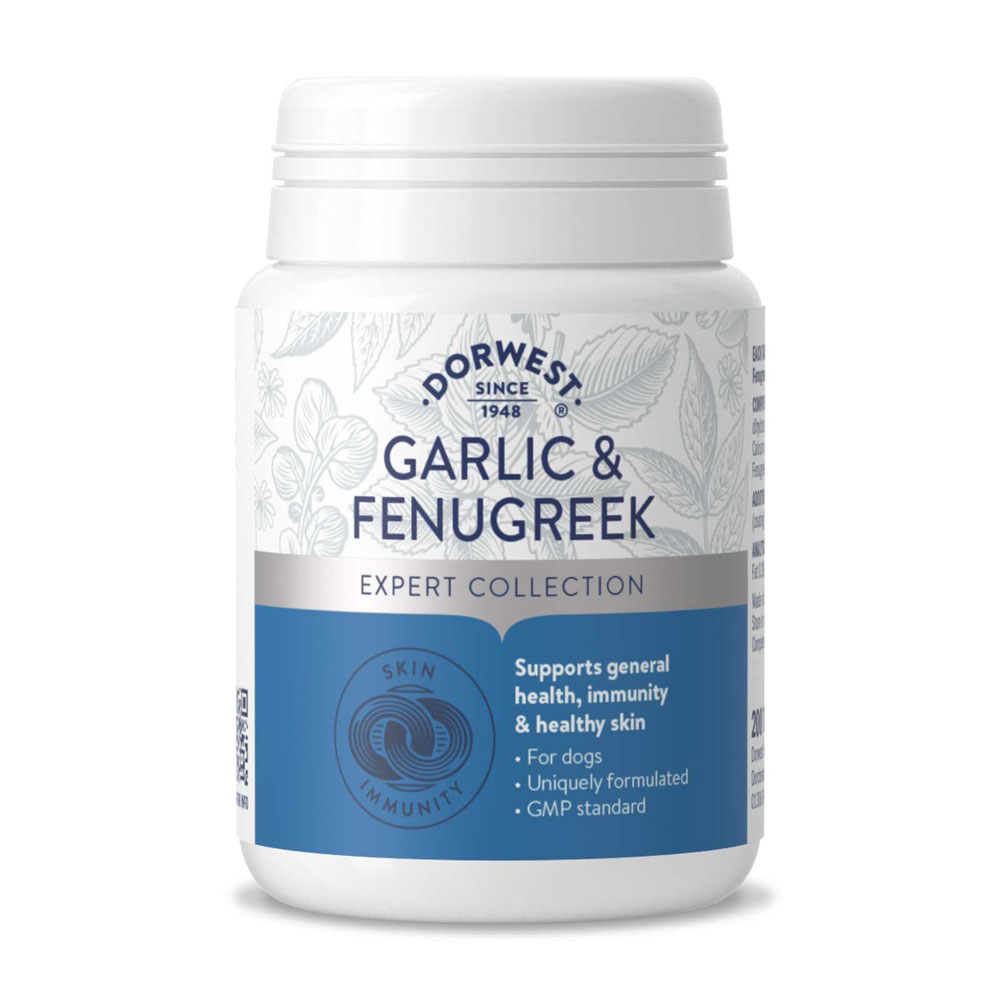
A combination of dietary adjustments that correct loose stools and natural GI Anti-inflammatories is usually helpful to restore anal gland health.
With a little love and attention you can support your animals communication and overall health while protecting the glanss and preventing anal gland issues from happening/
References
Dr Karen Becker - Are you making these canine Anal Gland mistakes - available here
